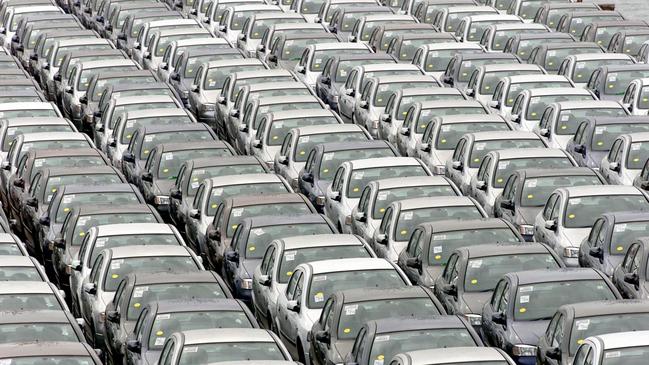Demand for cars drives rise in imports, as exports to China fall
Imports of motor vehicles and petrol surged in July as easing COVID-19 restrictions and tax incentives drove demand for cars and the fuel to drive them.

Imports of motor vehicles and petrol surged in July, helping drive a $2.5bn or 11 per cent increase in international purchases as the easing of COVID-19 restrictions and tax incentives drove demand for cars and the fuel to drive them.
Road vehicle imports bounced by $792m, or 49 per cent, between June and July, while petroleum imports jumped by $244m, or 15 per cent, according to preliminary goods trade figures released by the Australian Bureau of Statistics.
The July trade figures came after car lending surged by 20 per cent in the previous month, as Australians became more confident in leaving the house and as small businesses and tradies rushed to take advantage of the Morrison government’s boosted instant asset write-off scheme.
Still, the recovery in demand for motor vehicles and fuel only partially reversed the deep slump as a result of the coronavirus recession, with imports for both in July remaining historically low: down by 25 per cent and 42 per cent, respectively, versus a year earlier, the ABS said.
More broadly, total imports of goods year-on-year was down $6.2bn, or by 18 per cent, to $25.8bn.
While international goods purchases climbed in July, exports fell by $2bn, or 6 per cent, to $29.1bn the ABS data showed.
After recording record sales in June, a 9 per cent, or $934m, drop in iron ore sales and a 36 per cent, or $271m, decline in copper exports drove the decline in goods exports.
These falls were partially offset by continued and climbing demand for non-monetary gold, as exports surged by $1.3bn or 55 per cent to $3.5bn. The United States accounted for over a third of gold sales in the month.
“While exports of non-monetary gold are volatile and large month-to-month movements are not uncommon, exports in 2020 have been particularly strong with record highs recorded in March and then July 2020,” the ABS said.
The drop in exports and lift in imports left a goods trade surplus of $3.3bn in July – the 32nd straight monthly surplus.
Goods exports to China fell for the first time in six months, the data showed, with “significant declines” in iron ore, coal, and petroleum sales, the ABS said.




To join the conversation, please log in. Don't have an account? Register
Join the conversation, you are commenting as Logout